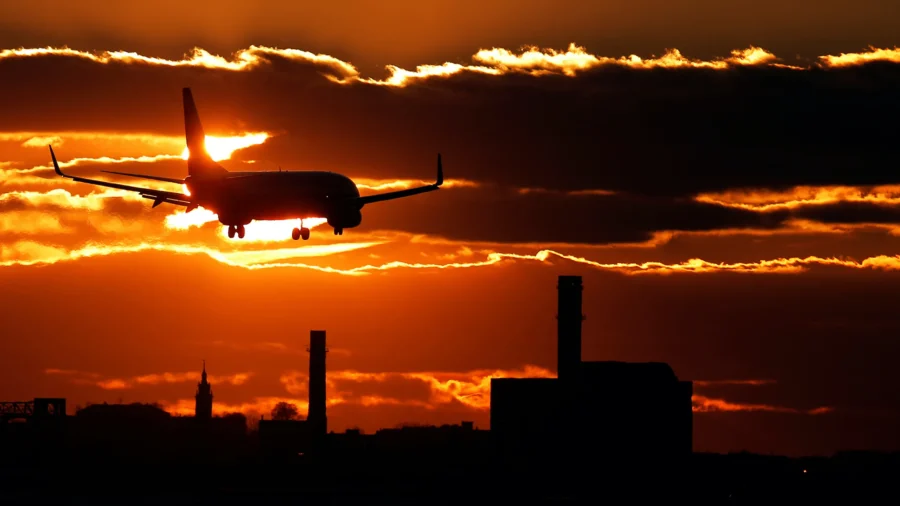The recent holiday season saw delays and cancellations in air travel, which some say was primarily due to shortages in air-traffic controllers and the impact of private jets. A group representing major passenger airlines has urged the government to intervene in order to ease the situation.
Airlines for America, which represents Delta Air Lines, United Airlines, Southwest Airlines, and others, urged Transportation Secretary Pete Buttigieg and Federal Aviation Administration (FAA) chief Michael Whitaker to “take all possible actions to find the appropriate balance between commercial and private aviation traffic with the goal of minimizing delays and cancellations for the traveling public.”
In a letter, the group also urged that “all possible steps be taken to avert additional staffing triggers, particularly in high volume centers” for air traffic control.
The FAA said airlines, general aviation, and others “have a seat at the Command Center, where the FAA monitors the airspace 24/7 and gives updates every two hours.”
The FAA also said that, “as air travel continues to rebound, the agency is taking immediate action to recruit, train, and hire more air traffic controllers”—but has acknowledged that the Authority is still about 3,000 controllers short of achieving optimal staffing levels.
The National Business Aviation Association said independent studies have previously shown that flights by mostly small, non-airline general aviation planes “are not a significant causal factor in aviation-system delays,” and added that “delays are most often caused by weather and the practices of the airlines themselves.”
Mr. Buttigieg said this month that the United States is on track to have the lowest number of flight cancellations in five years. He and Mr. Whitaker have prioritized boosting air traffic control staffing.
In September, the FAA extended cuts to minimum flight requirements at congested New York City-area airports through October 2024, citing staffing shortages. New York Terminal Radar Approach Control staffing is at just 54 percent of recommended levels.
In June, a government watchdog report said critical air traffic control facilities face significant staffing challenges, which pose risks to air traffic operations. At many facilities, controllers are working mandatory overtime and six-day workweeks to cover the shortage.
Mr. Whitaker said last week that he was naming a panel led by a former safety board official to address air traffic controller fatigue after a series of near-miss incidents.
At U.S. airports, there have been several near misses this year, prompting a $100 million-plus investment to prevent runway accidents.
The near-miss incidents this year included occurrences in Boston, Honolulu, New York, and Washington.
According to the National Transportation Safety Board (NTSB) and the FAA, some of the incidents apparently involved controller mistakes—and could have been catastrophic.
In one near-miss incident at Austin-Bergstrom International Airport in Texas in February, the air traffic controller involved was working an overtime shift during a six-day workweek, according to the findings of an investigation by the NTSB.
The FAA said in August that it would spend another $121 million to mitigate runway incursions and support airport infrastructure projects, including reconfiguring taxiways and installing new lighting systems.
It also began a monthly training series for its air traffic controller workforce, all in a bid “to reach our goal of zero close calls,” according to Tim Arel, chief operating officer of the FAA’s Air Traffic Organization.
More recently, the FAA convened a panel to investigate the problem of fatigue among air traffic controllers.
“The three-member panel will examine how the latest science on sleep needs and fatigue considerations could be applied to controller work requirements and scheduling,” the FAA wrote in a Dec. 20 announcement.
Reuters and Tom Ozimek contributed to this report.

